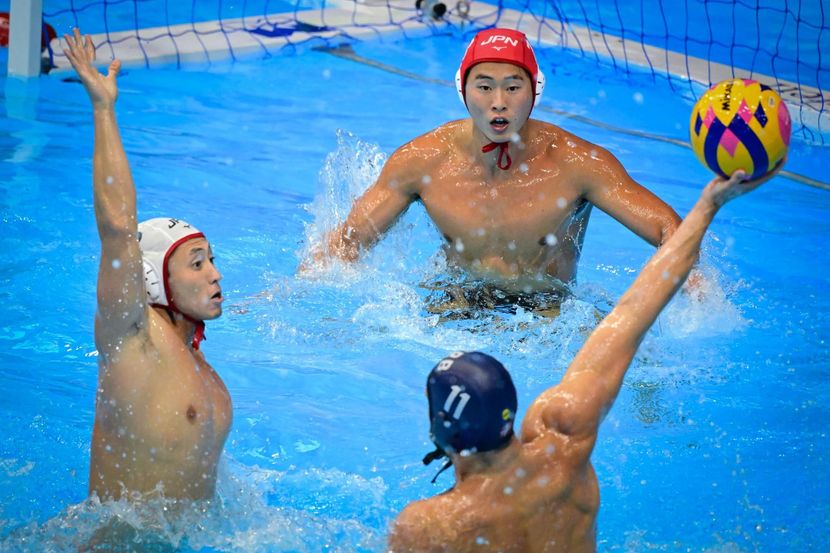
Japan, China and Kazakhstan head the nations chasing water polo gold at the upcoming Asian Games in Hangzhou, China. With gold comes a tantalising trip to the Paris Olympic Games next year.
Nine men’s teams and seven women’s will contest matches in a two-week stretch starting on September 25 at the Huanglong (Yellow Dragon) Swimming & Diving Centre. Nine men’s teams and six women’s contested the 2018 Games in Indonesia.
Japan men and China’s women looked the favourites for the crowns, although China and Kazakhstan men and Japan women will prove tough opponents in the quest for gold and an airplane ticket to Paris.
In the men’s competition, there are two groups of four with quarterfinals, semifinals and medal play-offs over six days. In the women’s competition, there will be a round-robin tournament over seven days.
Men’s Competition
Group A
China headlines the group, being a losing semifinalist at this year’s World Aquatics World Cup qualification tournament in Berlin, Germany, just missing the finals series in Los Angeles, USA. China have missed the last four World Championships since 2015 and finished fourth at the 2018 Asian Games after third, second and first in the previous tournaments. Goal-scoring sensation Zhongxian Zhang will lead the charge.
The People’s Republic of Korea’s best outings were silver in 1986 and bronze in 1990.
Iran has produced some class players and will be out to prove bronze over China in 2018 was no fluke. Iran finished fifth at this year’s World Cup qualifiers and its best scorer was Alireza Mehrikoshneshahri.
Thailand appears for the first time since 1998 for its fifth Games. Fifth placings in 1966 and 1978 were highlights.
Group B
Japan has the forward momentum this year and will be hard to slow or even beat in Hangzhou. It finished 10th at the July World Aquatics Championships in Fukuoka, Japan, one position ahead of Kazakhstan, so their clash on the second day of competition will be a pointer to the finals. Japan last won the title in 1970 and subsequently lost seven of the last 11 finals, so will be champing at the bit for victory.
Kazakhstan has been rebuilding in the past year and is a little raw, although 11th in Fukuoka was a solid result worthy of Japan’s respect. Kazakhstan almost has a stranglehold on the event, winning six of the last seven titles, missing the final in 2006 as China beat Japan in the final.
Hong Kong has yet to appear on the dais, three times losing bronze-medal encounters.
Singapore was in the first three gold-medal finals and last stood on the dais for third in 1986.
Women’s Competition
China has won all three titles on offer and appears to have the best chance of winning, considering its recent form and historical record. Watch out for Jing Zhang and Yiwen Lu.
Japan has been consistently working hard to improve its ranking and should be the closest team to China, however China beat Japan for 13th place in Fukuoka, Japan in July at the World Aquatics Championships, with a hefty 18-10 margin. Japan was second in 2014 and collected bronze in 2018. Players to watch include superstar Yumi Arima and Eruna Ura.
Kazakhstan has collected three medals with second in 2010, third in 2014 and silver in 2018. In Fukuoka it finished just behind China and Japan in the rankings. Viktoriya Khritankova and Viktoriya Kaplun will be on fire, especially Kaplun with her fine recent showing at the junior world championships.
Uzbekistan did not appear in 2018, but did claim bronze in the inaugural year and was fourth in 2014.
The People’s Republic of Korea is a newcomer to this level, although did host the Gwangju world championship tournament in 2019 and created a stir.
Singapore was fifth in 2014 and makes a second appearance. The nation has a history of playing the South-East Asian Games and now takes a dip in the Asian Games pool.
Thailand was fourth last time out and more recently contested the World Aquatics Challengers’ Cup in Barranquilla, Colombia, winning the silver medal in 2021.